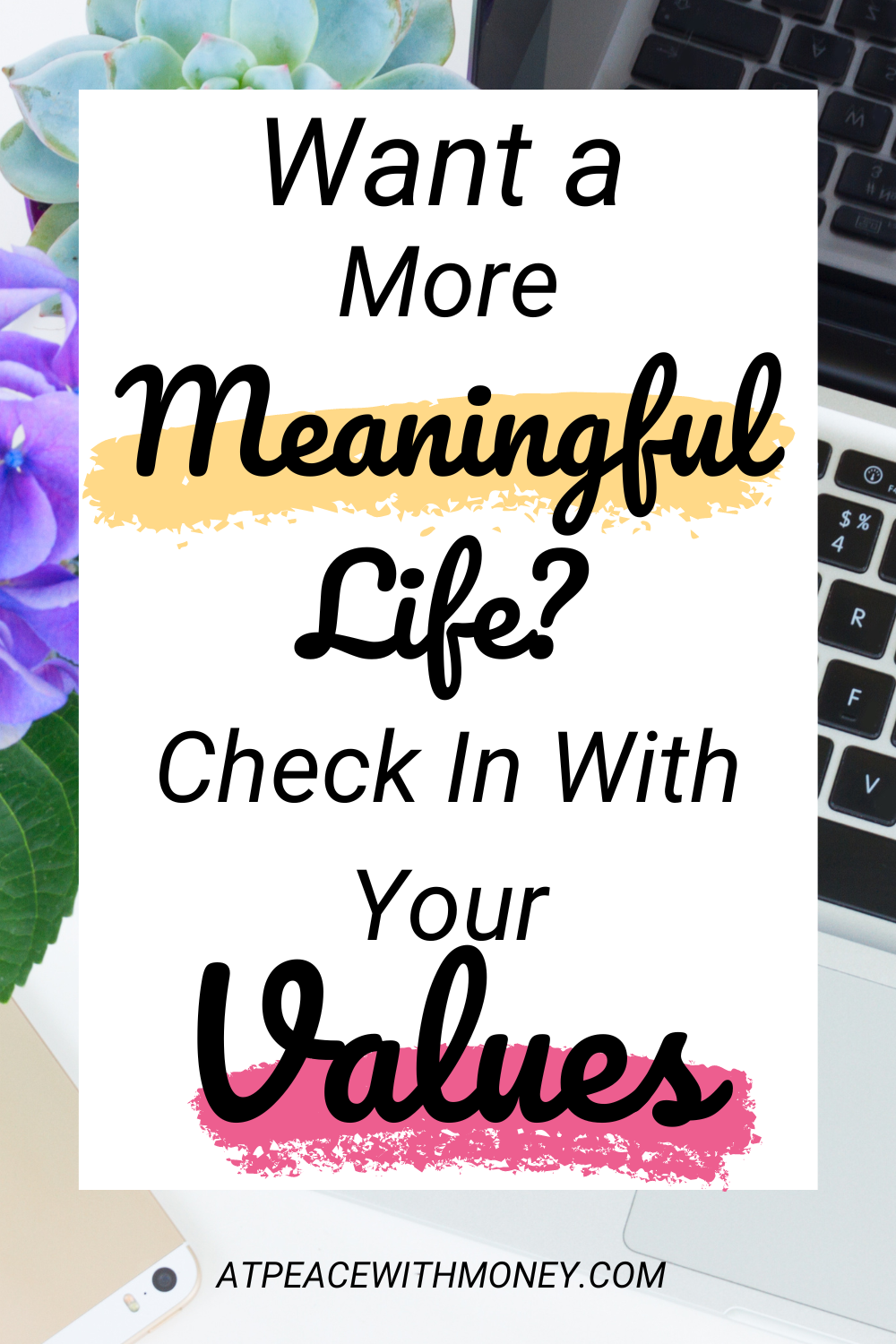Want a Meaningful Life? Check In With Your Values Regularly

You’ve done it – you’ve figured out what you value in life, you’ve culled your spending, and made a savings plan. You are well on your way to having your money bring real meaning to your life. Now what?
Obviously, first let’s celebrate all the amazing work you just put in! Congratulations!
Next, it’s important to know that the work doesn’t stop here. Let’s talk a little about why it’s important to check in with your values on a regular basis.
What You Value Changes Over Time
I’m going to venture a guess that you’re probably not the same person you were 15, 10, or even 5 years ago. Life is full of change, and our priorities shift with it. Although you’ve just done all this good work to set up a financial plan for yourself, don’t expect it to remain static. Give yourself room to change by resolving to check in with your values and update your money system regularly. This could be every 6 months, 3 months, or every year – find a frequency that works for you!
As Your Resources Change, So Might Your Desires
As we deepen our financial learning and grow our wealth, we may find that what we want, changes. Let me share a quote from my mentor Karen McCall that illustrates this point perfectly:
As people continue working through the Financial Recovery process, identifying areas of deprivation and discerning needs from wants, an amazing and intriguing thing begins to happen. They start to access deep desires that they may never have spoken about before or even known existed. Soon they discover buried dreams of buying a home, taking piano lessons, or learning about photography. Some talk of their fantasy of taking a sabbatical or learning about their family’s roots by visiting the homeland of their grandparents. People begin wondering aloud about their dreams of starting a philanthropic foundation or taking time away from work to volunteer for causes they hold dear.
I love this quote because it illustrates how the process of growing your financial literacy can unfold. Once you start to really become aware of the possibilities, you may find that you no longer want to deprive yourself of certain things you didn’t even know you wanted! The key here is intentionality. Checking in with your values on a regular basis, in an intentional way, gives you space for these changes to unfold and get incorporated into your spending and savings plans.

Stay Open to New Delights
Let me share a personal example with you for some encouragement. These days, I am relishing taking really good care of myself. I get facials from Me Time with Francoise, massages, chiropractic, and recently participated in Stasia’s Savasuk’s style school. I feel blessed to have the freedom to support other business owners while also taking great care of myself.
In the past, these things might not have seemed relevant or important to me. As I’ve continued to check in with myself about what’s important to my life, these values have evolved!
If you liked this article, I have a free e-Book for you! I’m sure you will enjoy 9 Secrets to Financial Self Care. Click to get your free copy!





















 There are a number of ways to take this plunge. First, you can look through everything yourself. Especially if your books are not that complicated, or you have a rough system going already, taking a look on your own is a good idea. You can also get a good picture of whether you’re able to hire or consult with a bookkeeper. A good bookkeeper will be able to
There are a number of ways to take this plunge. First, you can look through everything yourself. Especially if your books are not that complicated, or you have a rough system going already, taking a look on your own is a good idea. You can also get a good picture of whether you’re able to hire or consult with a bookkeeper. A good bookkeeper will be able to